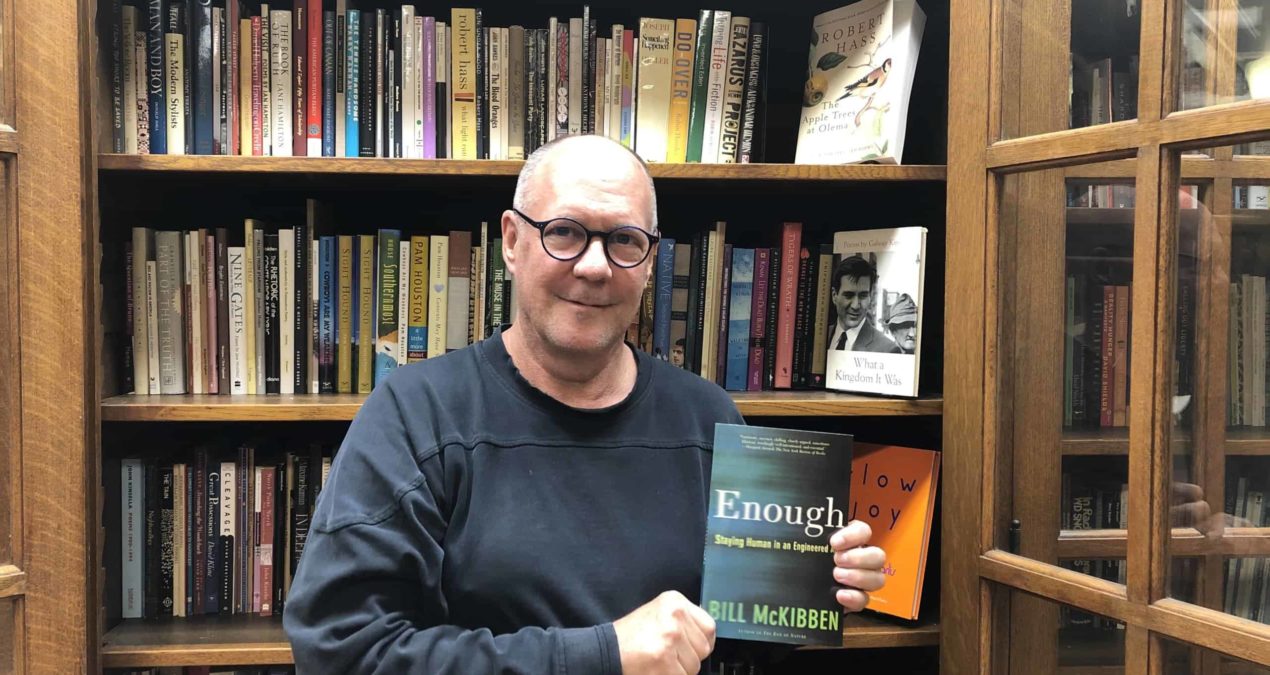
LIZ ANASTASIADIS & DEVIN MEENAN, Managing & Arts & Life Editors—The Beck Series is a series that has been at Denison for over fifty years. The Beck Series is funded by the Harriet Ewens Beck Endowment for English. Its goal: to provide students with the opportunity to learn from, listen and engage with writers across the nation in a tight-knit setting. Previous Beck Series readings during fall 2019 featured poet and essayist Hanif Abdurraqib on September 10, author David Lynn on September 4 and a special performance by Tayari Jones at the Columbus Museum of Art with a partnership with the Thurber House on September 18.
The series has a long history of bringing renowned writers to campus, from Yudora Welty, W.S. Murwin, and Tim O’Brien, to Louise Gluck, Robert Haas, Ernesto Cardinale (Latin-American writers), Michael Rosen and many others.
Baker talked about the importance of the series to students: “It’s one thing to come to school and study books. We want to remind students that people make books. Real people with real lives. The chance to talk to a writer, hang out, go to dinner and class, and is invaluable. All of the books around you are from someone sitting at a desk doing work. You get to meet someone who will look you in the eye and tell you how hard it is. It’s irreplaceable.”
Baker continued to describe how students have met writers via the series and have gone to study with them. According to Baker, Michael Rosen regularly hires Denison student interns during the summer.
Baker offers some advice to students who are working on their own projects, no matter the field:
“Go to these readings. Do your work and trust yourself to do your work. The heart of your work is solitary,” says Baker. “One of the cool things about a college, you have 2,000 people doing solitary work together. It sounds like a paradox but its magnificent. The work of the mind, free inquiry, not just the construction of products for a market. Make use of your four years here, it will go by in a flash. Sit down and do the work that you are here to do and that only you can do.”
Essayist, poet and professor Nicole Walker on October 15
Walker likes to pack a punch.
While questioning what it means to live sustainably, Walker generates meaning from our own lives and happiness to see how much we would have to sacrifice to truly live an environmentally-conscious life.
The author of, most recently, The After-Normal: Brief, Alphabetical Essays on a Changing Planet and Sustainability: A Love Story and A Survival Guide for Life in the Ruins. Her work has been published in Orion, Boston Review, Creative Nonfiction, Brevity, The Normal School and other places. She curated, with Rebecca Campbell, 7 Artists, 7 Rings—an Artist’s Game of Telephone for the Huffington Post. She’s a nonfiction editor at Diagram and Professor at Northern Arizona University in Flagstaff, Arizona.
Walker continues to talk about what it means to be an environmentalist: a lazy one, a selfish one, an activist. What does it mean to live and love sustainably?
Denison University’s Beck Series welcomes Camille T. Dungy
For the final Beck Series reading of this semester, Denison hosted poet Camille Dungy, author of four collected works, most recently Trophic Cascade, a professor of English at Colorado State University, the flagship public university of her home-state. During the reading Dungy said that poets “get to be halfway between a fiction writer and a non-fiction writer” and this stylistic blend shined through in her chosen pieces to read. One of her first readings, Letters To America, used her experience with curating her front lawn to discuss the overriding and overbearing sense of homogeneity that American communities propagate. Throughout the piece, Dungy eloquently examines why such similitude is promoted throughout American culture: “Homogeneity can seem much easier.” However, she in turn declares why such a sentiment is harmful and we should strive to break our cultural homogeneity: “Efforts to reduce national diversity always result in depletion.”
Once the reading concluded, The Denisonian asked Dungy how, given her so much of her writing rests on the environment, she feels about its place in the current zeitgeist. She had this to say:
“The environment should be on everybody’s mind and so one of the things about writing is to figure out a way to articulate and frame the thoughts that we’re having or that we probably should be having. So I feel a kind of moral responsibility as a writer to be intersecting history, family, natural questions to help shape the ways we’re going to survive, we’re going to move forward, but also how we’re going to thrive.”
Dungy’s writings potently demonstrate how writers can take their personal experiences and use them to craft socially resonant pieces that are personal yet universal.

